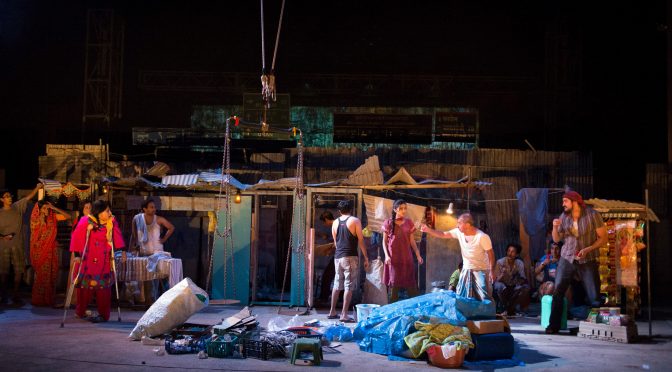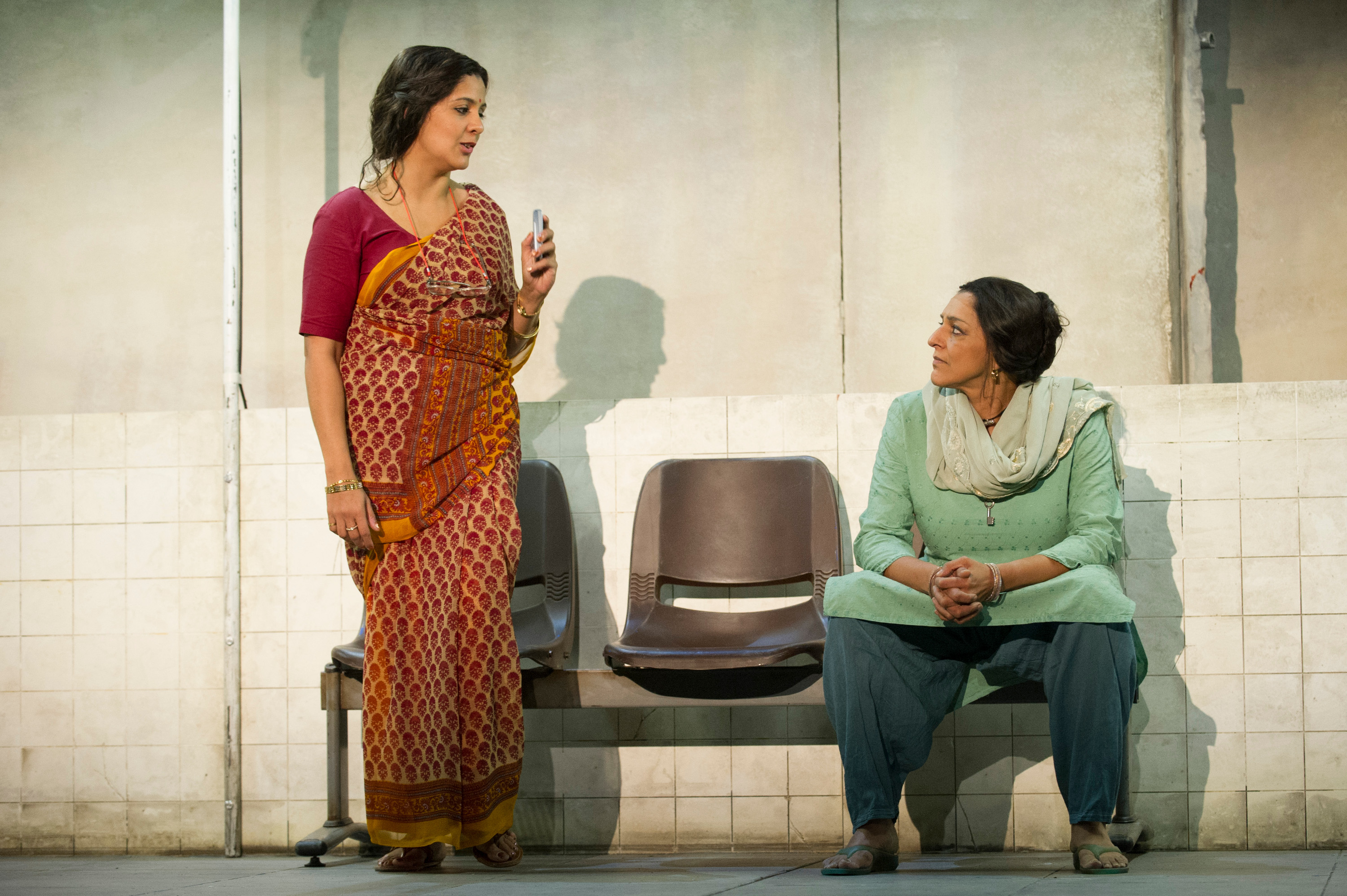This collection of 100 scenes, with the instruction that they can be selected at will and performed in any order, is “a challenge and an invitation” to theatre companies. It’s a startling idea that makes for a big book and shows playwright Alice Birch’s prodigious ability. It is also a suitable celebration of co-producer Clean Break Theatre’s 40 years of working alongside women involved with the criminal justice system. The treatment for the many situations they must have encountered is, by turns, heart-wrenching and thought-provoking. So what has this production, directed by Maria Aberg, created in response?
First, some brilliant performances. From names this theatregoer loves – such as Jackie Clune, Jemima Rooper, Zainab Hasan and Thusitha Jayasundera – to performers I’ve not had the privilege of seeing before, the acting is stunning. Tackling characters who all have a connection to crime, from the most serious to unnamed incidents, undoubtedly makes the show grim. But what’s important is how far-reaching and detailed repercussions are shown to be. Highlighting the children and relatives affected, as well as the women convicted, makes every character encountered a figure to be accounted for. As the 16-strong team moves from role to role, in scenes that are often very short, their achievements are breath-taking.
Much of [Blank]’s power come from its variety. Thirty scenes are delivered here, so we get to see many different women and hear multiple stories, from foster care, including one from the many scenes written for children (the young performers are fantastic), to an adult reunited with a mother freed from prison (providing stand-out moments for Kate O’Flynn and Lucy Edkins).

Remember, teasing themes or coherence out of the texts is a choice Birch offers. Part of her point is to challenge conventional narratives about women ‘like this’. Aberg’s response is a light one; a couple of scenes share characters, but this feels like a coincidence. Rosie Elnile’s design and projections of the performers bind the play visually (although I am agnostic about the need for them). And there’s a nod to our specific location in the boldest scene that roots us in Covent Garden with the Donmar’s particular clientele: in a dinner party that turns into a disaster, Birch shows ruthless skills as a satirist and Shona Babayemi gives an unforgettable performance.
Aberg is wise to have faith in Birch’s short sketches – they are packed with emotion and drama. It can be frustrating to leave the action so quickly, and dizzying to think of how many scenes could be developed into full plays. That’s not the aim, and the writing is too precise for it to be the case – each scene stands fully formed. Rather, being overwhelmed by this breadth of – frankly awful – experience is a statement. This feels like a whole other kind of theatre. The play could be mounted anywhere, with any cast, making it a real treasure – full of possibilities and lives that we don’t normally see. While these women maybe invisible to some, [Blank] goes some way to filling that void.
Until 30 November 2019
Photos by Helen Maybanks

![“[Blank]” at the Donmar Warehouse](https://onceaweektheatre.com/wp-content/uploads/2019/10/1.-The-company-in-BLANK-at-the-Donmar-Warehouse.-Director-Maria-Aberg-Designer-Rosie-Elnile.-Photo-Helen-Maybanks-157-1-672x372.jpg)


